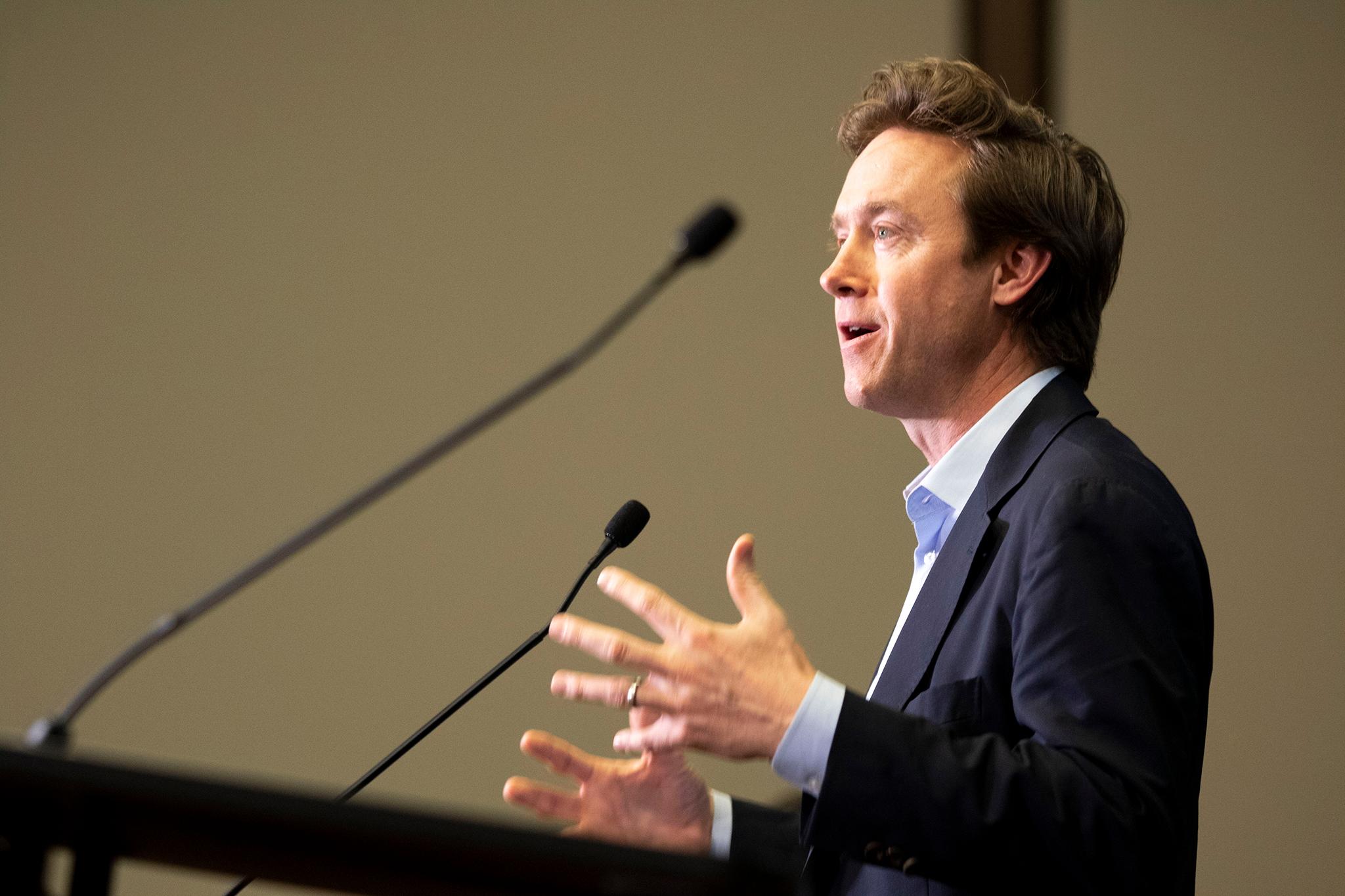Mayoral candidate and former state senator Mike Johnston's public safety plan aims to separate people struggling with addiction and mental illness from the traditional criminal justice system, while also doubling down on traditional enforcement for things like car thefts and guns.
"We know we can build the city that is much safer than the one we have now," Johnston said of the plan he released this week. "And that comes from a combination of prevention and intervention and accountability."
He'll need people to execute the plan, though. As mayor, Johnston said he would hire 200 more first responders officers, EMT and clinical professions to Denver's streets. Johnston noted that the STAR co-responder program is showing results, and more mental health and addiction specialists will free up cops to work more serious crimes.
Saying you want to hire is one thing, doing it is another.
Police departments everywhere are struggling to hire officers. Applications to police academies are down. And according to a survey in the summer of 2021, police resignations and retirements have surged. Denver Police Department currently has 148 open positions, with 70 recruits in the police academy.
But not only does Johnston say he wants more officers, he wants the force to be more diverse, with a goal of 50% of cadet classes being female.
Efforts to increase these ranks are underway in Mayor Michael Hancock's administration, and it hasn't been easy. For his part, Johnston said having a detailed plan and framing the mission properly can inspire people into the first responder positions.
"It's a very mission driven organization," Johnston said. "If you feel like you're making an impact, you feel like you're all working from the same playbook and making a difference, people are drawn to it."
Johnston said this will all be paid for thanks to currently budgeted positions, saved overtime expenditures and state grants.
To a large degree, Johnston wants to divert people away from the traditional criminal justice system.
He wants to expand diversionary court programs that specialize in addiction focused issues, where judges can mandate treatment as punishment, adding expungement services for offenders who complete programs.
At the jail, Johnston said he will convert two pods to in-patient mental health and addiction treatment centers, an effort that is already underway. While Johnston wants to expand diversionary courts, he said he wants to make sure that there are beds available to fulfill subsequent treatment mandates.
Much of Johnston's plan builds off of what the Hancock administration is doing now or plans to do.
But when it comes to car thefts, his idea for a dedicated unit is new.
There is no such unit now within DPD, though there is a metrowide task force. Johnston wants to dedicate 20 officers to the unit.
Car thefts have almost tripled in Denver, from 5,205 in 2019 to 14,674 last year, according to DPD data. Other associated crimes have also doubled or more that doubled, including theft of items from vehicles and parts from cars. To a large degree, controlling car thefts can bend the curve on overall crime rates in the city.
Johnston wants to expand the use of surveillance technology on the roads to give cops the tools to reduce crime -- license plate readers, halo cameras, and Shot Spotter -- things Denver officers already employ far more than other cities.
And Johnston would push to change state law to make car theft a felony again, the legislature made certain auto theft crimes a misdemeanor. Gov. Jared Polis and state lawmakers are currently working on that this session.
Denver Police have complained there are too many guns in the city.
Reports of gun shots have more than tripled. Johnston said he would enforce Colorado's red flag law, which allows guns to be taken away from certain individuals deemed a danger to themselves or others. Johnston admits that Denver Police are, by far, leaders in Colorado in using the red flag, or Extreme Risk Protection Orders, to remove guns, but more dedicated resources would help.
Johnston, himself a gun owner, said he would push for a 10-day waiting period for gun purchases in the city. But that may end up being more symbolic than impactful. There are more gun stores in cities around Denver than there are gun stories in Denver. There are 49 licensed gun dealers in Denver, but 268 dealers between Aurora, Littleton, Lakewood, Arvada, Westminster and Englewood.
Johnston said, however, it would be a statement of values, and could inspire other municipalities around Denver to do the same.
Johnston is concerned that Denverites have become somewhat accustomed to the crime around them.
"Think we've come to a place in the city where people are just shocked by the level and frequency and persistence of crime," Johnston said. "I think we've started to believe that that just has to be a reality of life. And I think that is deeply false. We know there are ways to solve these problems."













